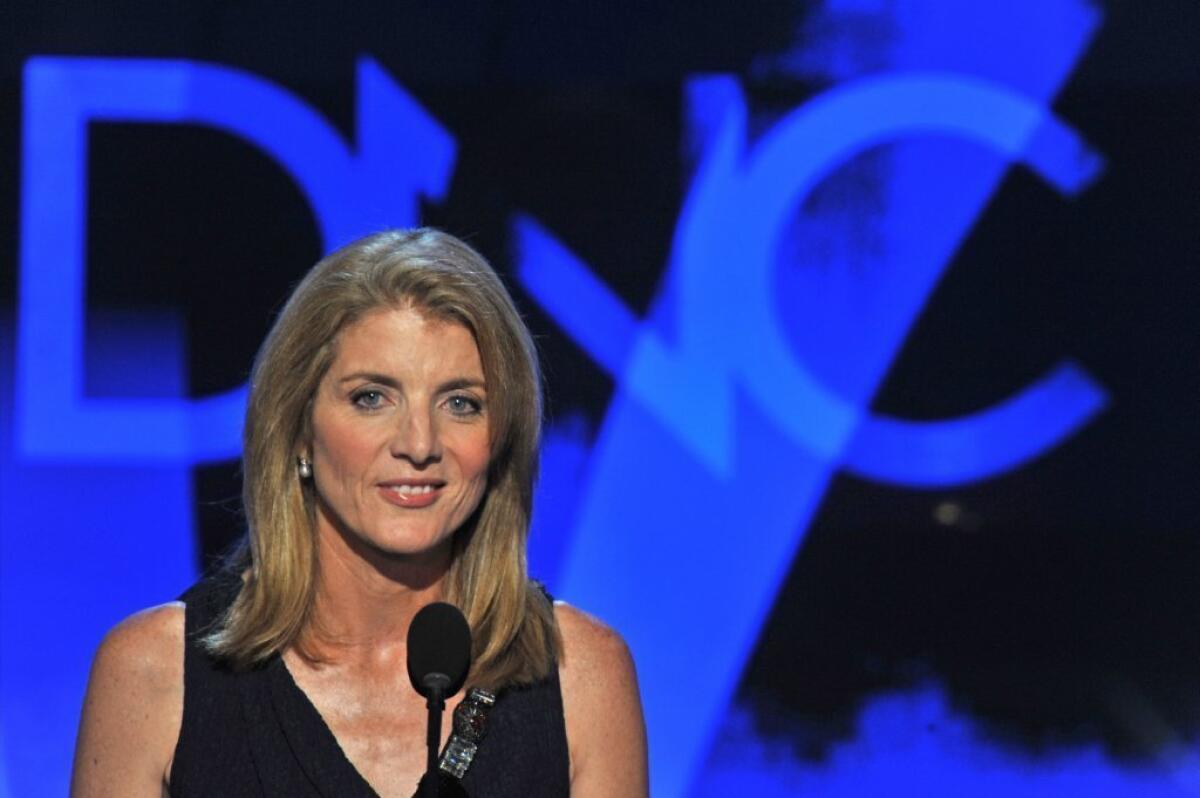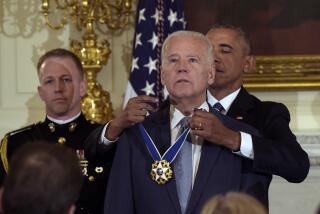Obama’s instant diplomats

Caroline Kennedy, President Obama’s nominee to be ambassador to Japan, brings a unique celebrity status — though not much in the way of expertise or relevant experience — to the ranks of U.S. diplomats. But in another sense, Kennedy is typical of many of Obama’s ambassadorial appointments: She provided him with important support when he was seeking election to the White House.
In Kennedy’s case, that support took the form of a timely endorsement during the 2008 campaign from the daughter of a beloved Democratic president. Other nominees paid their dues by contributing to Obama’s campaigns in the more traditional sense or by encouraging others to do so.
Among Obama’s recent political appointees to ambassadorial posts are at least a dozen who have raised money for his campaigns. Others have supported other Democrats. According to data compiled by Bloomberg News, at least 26 of the president’s current and nominated ambassadors were major Democratic campaign contributors, giving a total of at least $13.6 million to Obama, the Democratic Party and congressional candidates.
Doling out ambassadorships to supporters and contributors is nothing new. But Obama is doubling down on the practice. The American Foreign Service Assn. reports that 56.1% of Obama’s second-term ambassadorial nominations have been political, compared with about 30% for recent administrations. Of the political nominees, at least half have had fundraising roles. So much for Obama’s promise that he would shake up the way things were done in Washington.
Not all political appointees to ambassadorships are as bereft of government experience as Kennedy, a lawyer and author who has never held public office. For example, John B. Emerson, a Beverly Hills investment firm executive nominated as ambassador to Germany, served as deputy assistant to the president in the Clinton White House. But typically, ambassadors chosen from the ranks of donors and supporters lack the familiarity with foreign policy that is a job requirement for career diplomats and that also can be found in ambassadors who served in important federal offices. (Past U.S. ambassadors to Japan have included Walter F. Mondale, a former vice president and senator; Tom Foley, who had served as speaker of the House; and Mike Mansfield, a former Senate majority leader.)
It would be straitjacketing U.S. diplomacy to insist that every ambassador be a career Foreign Service officer. Able ambassadors also can come from the ranks of politicians, lawyers, academics and business executives. But when the president decides to bypass the Foreign Service, it shouldn’t be to reward a campaign contributor or celebrity supporter. The impression that ambassadorships are political plums inspires cynicism not only among Americans but also in the countries where these instant diplomats are posted. Obama surely recognizes that, which makes his embrace of the old way of doing things so offensive.
More to Read
A cure for the common opinion
Get thought-provoking perspectives with our weekly newsletter.
You may occasionally receive promotional content from the Los Angeles Times.









